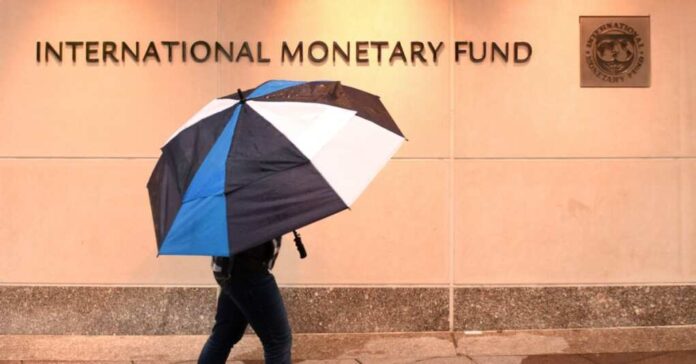Last week, the International Monetary Fund (IMF) criticized the Biden administration’s high spending levels, stating that they are not sustainable in the long term. The warning was highlighted in the IMF’s World Economic Forecast, emphasizing the consequences of the administration’s fiscal policies. However, in typical Biden fashion, the administration quickly pointed out that all the problems were due to the Trump era.
According to the New York Post, the IMF, known for battling financial crises worldwide, cautioned that the ballooning U.S. national debt poses a serious long-term risk to the global economy. But hey, why take responsibility when you can just pass the buck, right?
The IMF noted, “The exceptional recent performance of the United States is certainly impressive and a major driver of global growth. However, it reflects strong demand factors, including a fiscal stance that is out of line with long-term fiscal sustainability.”
Despite these warnings, there appears to be no shift in the administration’s approach to spending. Last month, a budget proposal of $7.3 trillion for fiscal year 2025 was revealed. Furthermore, the Office of Management and Budget projections suggest that the national debt would escalate to $45.1 trillion by 2034 under this plan.
The IMF’s alarm comes at a critical time as the U.S. national debt nears $35 trillion, growing at a rate of approximately $1 trillion every 100 days. Additionally, the burden of the national debt has intensified, with debt interest payments exceeding $1 trillion in October alone, as reported by Business Insider.
The U.S. debt-to-GDP ratio also poses concerns. Currently, the U.S. holds the ninth-highest debt-to-GDP ratio in the world at 129 percent, a level that significantly hinders domestic economic growth. Optimal ratios are considered to be 77 percent or lower, according to the World Population Review.
In a move straight out of the Biden playbook, the White House wasted no time pointing fingers at Trump. White House spokesman Michael Kikukawa complained about the Trump administration’s policies, stating, “The Trump tax cuts added $2 trillion to the debt with unpaid giveaways,” adding that the giveaways were skewed toward the wealthy and big corporations. Kikukawa also whined about how “Congressional Republicans are proposing another $5.5 trillion in tax cuts.”
But fear not, dear taxpayers, for Biden has a solution to all this mess: a solution we should all be worried about. President Biden’s approach to addressing these fiscal challenges includes proposing significant tax increases. His budget plan suggests raising the corporate tax rate to 28 percent and the minimum corporate tax from 15 percent to 21 percent. Additionally, he proposed a minimum 25 percent tax on billionaires, defined as those with a net worth of $100 million or greater.
And just when you thought it couldn’t get any better, Biden is also pushing for $7.4 billion in student loan debt cancellation, attempting to utilize a different legal basis than a previous plan that the Supreme Court struck down. Why should anyone have to pay for their own mistakes when Uncle Sam is here to bail them out?
Despite these initiatives, the IMF and many Americans remain concerned about the country’s economic trajectory. According to a January Pew poll, only 28 percent of Americans currently view our economic conditions as excellent or good. Furthermore, inflation continues to be an issue, with a rate increase of 3.5 percent from March 2023 to March 2024.
The IMF’s advice suggests that the administration needs to curtail spending and withdraw money from the economy to manage inflation effectively. However, Biden’s policies seem to emphasize increased government involvement and spending.
Ultimately, as the IMF starkly noted, “something will have to give.” This implies that without significant changes in fiscal policies, the U.S. may face severe economic repercussions.
But hey, who needs fiscal responsibility when you can just blame the other guy? As Reagan famously said, “In this present crisis, government is not the solution to our problem; government is the problem.”

















